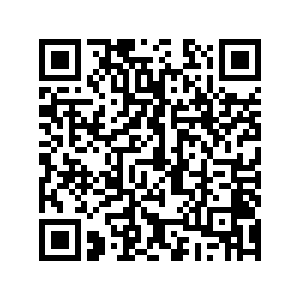by Xinhua writer Gao Wencheng
BEIJING, April 27 (Xinhua) -- Grave diggers in Iran are working around the clock, and chimneys of crematoriums in India have started melting. The two countries are combating a surge in COVID-19 cases and deaths with vaccines urgently needed.
One common factor for the noticeable vaccine shortage in many countries is the enormous hurdle set by Washington. For India, it is the U.S. export controls on raw materials for vaccine production, while for Iran, it is the unilateral sanctions that block its vaccine purchases.
With these selfish, if not malicious, policies, the United States is losing its moral compass in the global vaccination race to save lives.
The United States said on Sunday that it had lifted restrictions on exports of vaccine supplies to help vaccine makers in India expand production. Such a belated decision came following increasing exposure of U.S. vaccine surplus and sharp criticism over Washington's vaccine nationalism.
Since the outset of the pandemic, the United States has rushed to secure vaccine deals. According to the latest update of Bloomberg's Vaccine Tracker, the United States, with only 4.3 percent of the global population, has 22.7 percent of the world's vaccines.
While vaccines were still not available to many in the developing world, thousands of COVID-19 vaccines ended up in the garbage across the United States every day, NBC News reported in January.
Washington has actually become a major disrupter in the global supply chain of vaccines and fueled what World Health Organization (WHO) chief Tedros Adhanom Ghebreyesus called a "shocking imbalance" in the distribution of coronavirus vaccines between rich and poor countries.
Meanwhile, despite the pandemic's fallouts on people's basic human rights like life and health, the United States has continued its maximum pressure campaign against countries like Iran and Venezuela, rendering them difficulty in purchasing COVID-19 vaccines with their money in foreign accounts locked up by U.S. sanctions.
Iranian President Hassan Rouhani said earlier this month that the United States blocked Iran's access to 10 million doses of COVID-19 vaccine by pressuring relevant suppliers.
Moreover, the United States has indulged itself in moves that put global vaccine cooperation as part of geopolitical competition.
Some officials in Washington, together with certain U.S. media, have kept on throwing mud at China's and Russia's vaccine cooperation with other countries, working to raise whatever flimsy doubts on the efficacy of the vaccines produced by the two nations.
As a matter of fact, the United States is the very one that has politicized the virus, significantly undermining global solidarity and cooperation.
"It's outrageous ethically, morally, scientifically," Maria Van Kerkhove, a WHO epidemiologist, told the Washington Post on global vaccine inequities. "We have all the kindling to start fires everywhere. We're sitting on a powder keg."
Washington's announcement to help New Delhi is welcome to the world as it could signal a U.S. return to the cooperation against COVID-19. It is hoped that the sole superpower will match words with deeds and make more positive contributions. Clock is ticking and lives are at stake. The world cannot afford any more delay in this fight. Enditem
